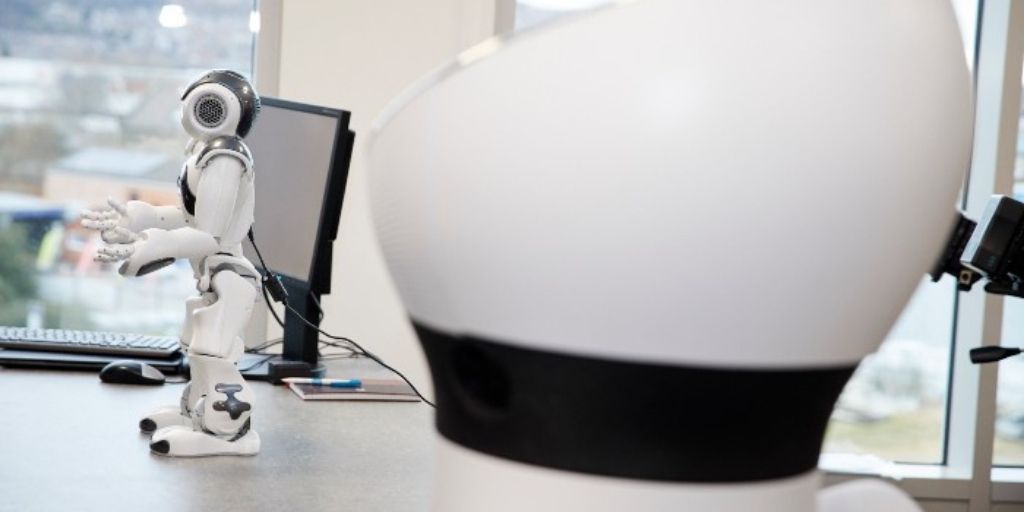
Sheffield Hallam University has joined a new research network exploring how healthcare robots could support people living with frailty in the community.
- The EMERGENCE network aims to bring healthcare robotics out of the lab and into the real-world, exploring how they can support people to better manage the conditions that result from frailty.
- The project has received a £700,000 NetworkPlus grant from the Engineering and Physical Sciences Research Council.
- Sheffield Hallam University is one of five universities involved in the network which also includes healthcare partners and robotics companies.
The EMERGENCE network aims to bring healthcare robotics out of the lab and into the real-world, exploring how they can support people to better manage the conditions that result from frailty themselves and, by providing information and data to healthcare practitioners, enable more timely interventions.
The project, which has received a £700,000 NetworkPlus grant from the Engineering and Physical Sciences Research Council, brings together researchers from Sheffield Hallam University’s department of computing and the Advanced Wellbeing Research Centre, University of the West of England Bristol, The University of Sheffield, Heriot Watt University and the University of Hertfordshire.
Each university will collaborate with their regional Academic Health Science Networks, care commissioning groups, Integrated Care Systems, hospital trusts, as well as residential and community care providers and local authority councils.
In addition to their healthcare partners, the network also has on board robotic companies such as Consequential, Cyberselves, and PAL Robotics and Skills for Care UK, the strategic body for workforce development in adult social care in England, who will advise on understanding future skills development requirements.
Professor Praminda Caleb-Solly, from the University of West England Bristol, who is leading the network said: “Healthcare robots are increasingly recognised as solutions in helping people improve independent living, by having the ability to offer physical assistance as well as supporting complex self-management and healthcare tasks when integrated with patient data.
“The network’s goal will be to galvanise patient-focused healthcare robotics research and knowledge exchange, ensuring increased uptake by facilitating health and social care, industrial and academic experts to come together in solving real-world challenges of supporting people with frailty, knowledge which can be extended to other patient groups.
Alessandro Di Nuovo, professor of machine intelligence at Sheffield Hallam University, who is leading the co-creation of robotics solutions said: “We will nurture co-designed research to help lead to novel technologies capable of transforming how frailty is managed in the community. Up to 10 funded feasibility pilot studies will drive co-designed, high quality research that will lead to technologies capable of transforming community health and care.












